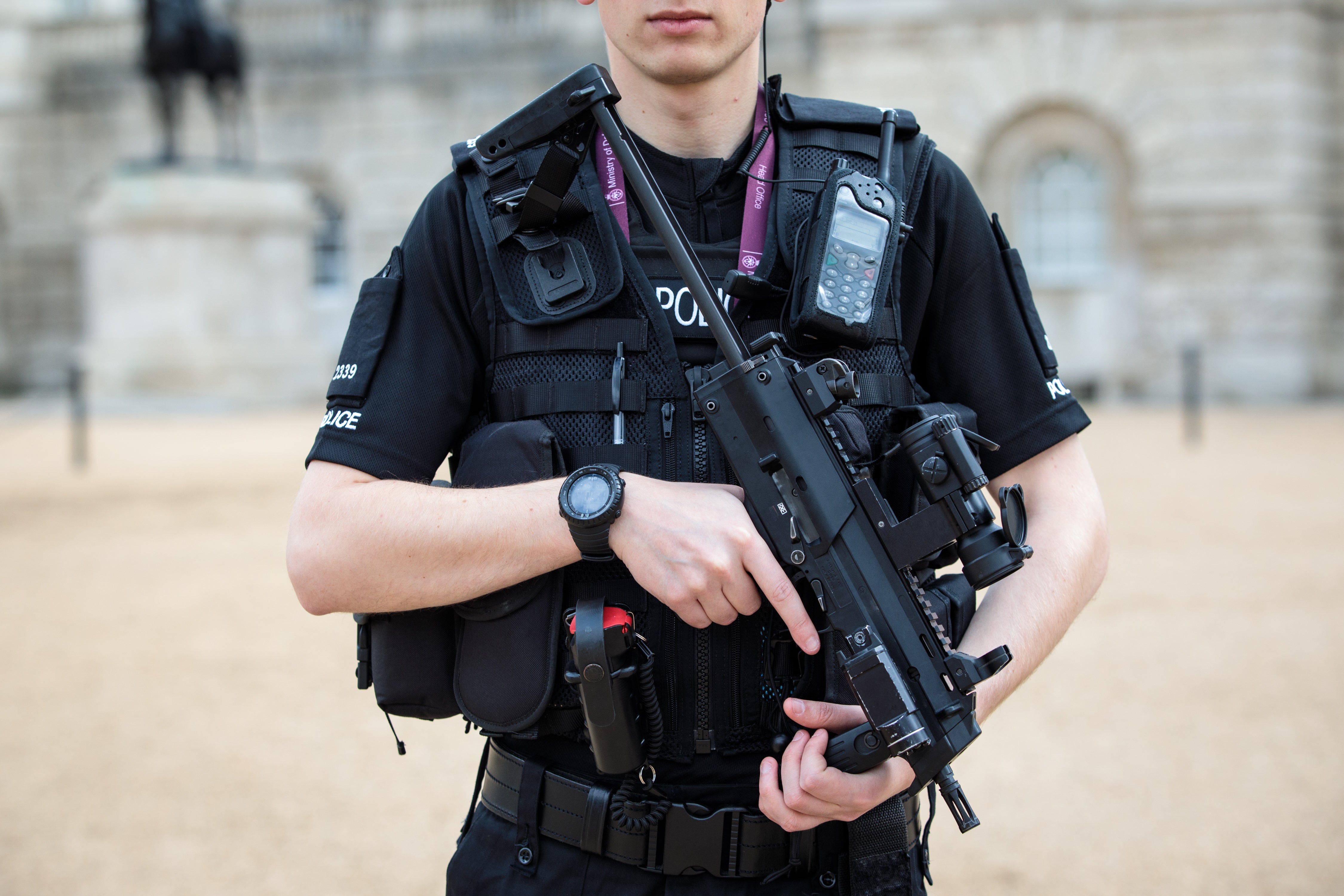Terror suspects arrested in Britain mostly white and British, new figures show
Home Office figures show that one in six terror suspects arrested are now children

White people make up the largest ethnic group of terror suspects in Britain, new figures show as the number of far-right investigations continues to grow.
A Home Office report shows that 45 per cent of people arrested on suspicion of terror offences in the year to September were white, 37 per cent were Asian and 7 per cent were black.
Three quarters of the 190 suspects considered themself to be British or dual citizens, with the proportion having dramatically increased from a third in 2002.
The figures were published after the head of MI5 warned of the threat from “self-initiated terrorists” planning attacks.
Ken McCallum said jihadist terrorism “remains the larger problem” for the security services, but that the extreme-right wing had grown from a fifth to a quarter of investigations being dealt with in a year.
“We are seeing growing numbers of right-wing extremist influencers, operating globally, who fuel grievances and amplify conspiracy theories,” he added. “This problem feels like it will endure.”
A record proportion of those detained by counter-terror police in the past year were children, who now account for one in six people arrested on suspicion of terror offences.
Figures released on Thursday show that 31 under 18s were arrested, 32 suspects aged 18 to 20 and 25 aged 20 to 24.
In the same period, seven children were charged with a terror-related offence and four were convicted.
Before 2016, arrests of children under terror laws rarely rose out of single figures annually in Britain, but since then the number has not fallen below 12 and teenagers have made up an increasing proportion of suspects.
Several have been jailed over Islamist and neo-Nazi terror plots in the past, but the majority of youth defendants are charged for possessing documents that would be “useful to someone preparing an act of terrorism”.
Jonathan Hall KC, the Independent Reviewer of Terrorism Legislation, said that terror suspects aged under 20 now outnumber those between 21 and 30 for the first time.
He told The Independent: “It may simply be that children and young people are getting involved in terrorism at an earlier stage.
“More likely, a new and peculiar strand has emerged in terrorism in Great Britain. The gateway to terrorism offending for these children and young people is the internet.
“Almost certainly, they are isolated and unhappy, and many of them will have autism and suffer from poor mental health. I never anticipated that a category of social vulnerability would shine out so clearly from the pages of terrorism statistics.”
The security services have foiled 37 “late-stage” terror plots since March 2017. Speaking last month, the MI5 director general said they were “a mix of Islamist and extreme right-wing terrorism”.
Mr McCallum added: “In a free country, detecting self-initiated terrorists – who often don’t reveal their plans to anyone, and can move quickly and sometimes spontaneously from intent to violence – is an inherently hard challenge.
“A challenge which is compounded by the complex mix, often, of extremist ideology with personal grievance and individual vulnerability such as mental ill-health. This poses pressing questions about how different elements of the state should best join up to manage risk to the public, effectively and proportionately.”
Of the 190 people arrested in the past year, 35 per cent were still under investigation when the statistics were recorded, 28 per cent had been charged, a third were released without charge and 4 per cent faced alternative action.
As of 30 September, 65 per cent of the 239 people in prison for terrorism-connected offences in Britain were categorised as holding Islamist-extremist views, 28 per cent extreme right-wing and 8 per cent other.



